Coronavirus: ‘We’ll be out of ICU beds in New South Wales by April 10’
To be tested for coronavirus in Australia you have to meet certain criteria. But the country’s deputy chief medical officer says that will change.
Australia could start running out of Intensive Care Unit (ICU) beds out in less than three weeks if the coronavirus cases keep rising as they are now, it has been warned.
More widespread testing for the disease could also come into play as Australia’s deputy chief medical officer Paul Kelly said the government would be “removing the traveller component” in the coming days.
ABC presenter Dr Norman Swan warned hospital beds could run out in NSW by April 10.
“If this hockey stick (the sudden rise in cases) doesn’t change that much, is that we’ll be out of ICU beds in New South Wales, Victoria will be behind that, by April 10,” he said on Q&A Monday night.
“And in that case ICU physicians will be faced with some very difficult decisions. And overseas, 30 per cent to 40 per cent of ICU beds are filled with young people.”
His warning came after one questioner asked if Australia was at risk of running out of ventilators.
That is a fate Italy is now facing and doctors are being forced to decide which patients should get the beds, as hundreds of people die each day.
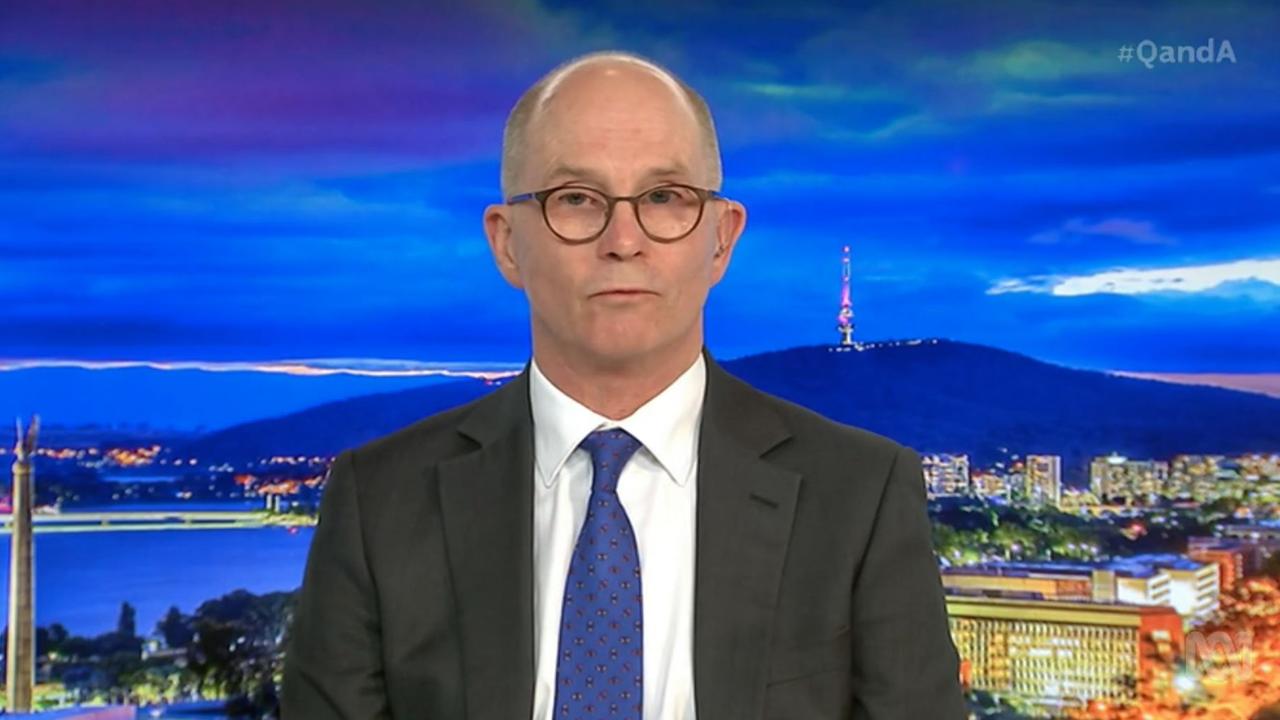
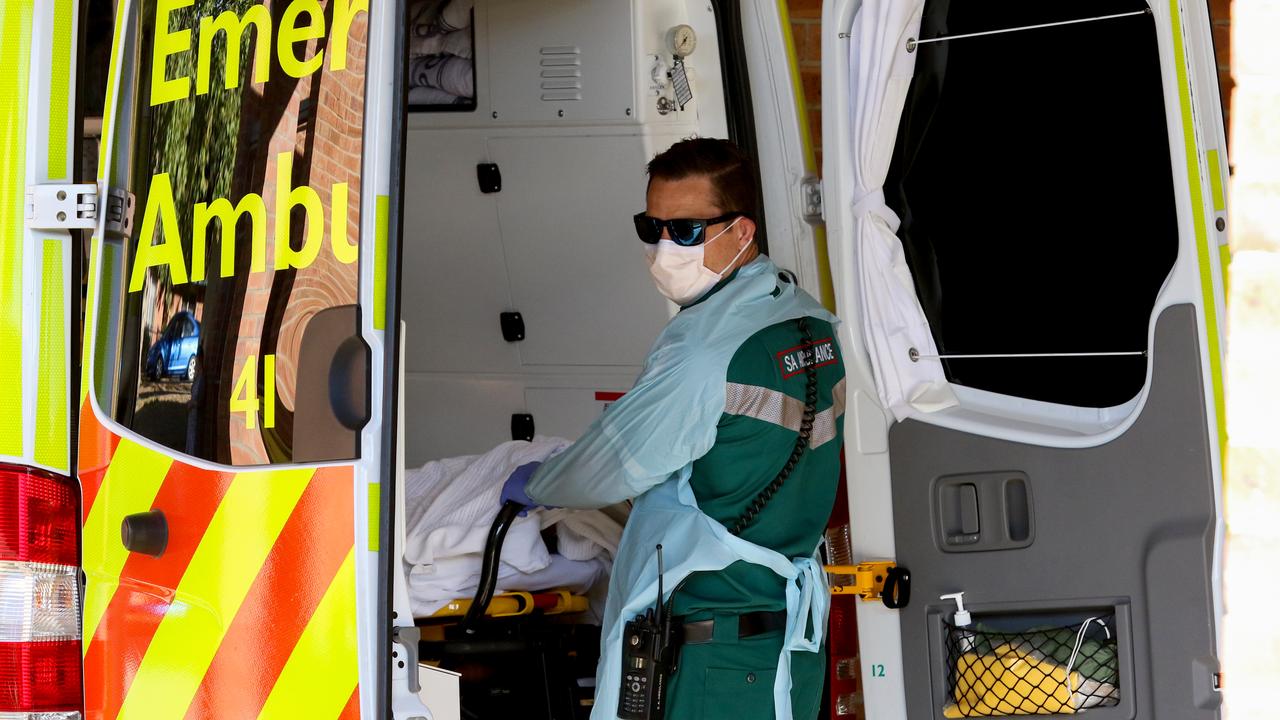
However, deputy chief medical officer Paul Kelly said there was a “laser-like focus” on Australia’s current intensive care capacity.
He said state and territory leaders have told him doubling ICU capacity is a relatively simple thing and a tripling of capacity is also possible.
He also warned against comparing Australia to Italy.
“Look, we are not Italy. I’ve seen some people say when they look at the curves of what Norman is referring to, the epidemiological curve that we’re two weeks behind Italy,” he said. “We are not two weeks behind Italy. We’ve been testing and finding many more mild cases.
Italy mainly tested the top of the pyramid, the very serious cases that came into hospital.”
He said Italy’s first thousand confirmed cases were very serious, so they only discovered the virus by the time it had already swept through the population.
“Our first 1000 were mainly community cases. Mostly involved with travel from overseas,” he said.
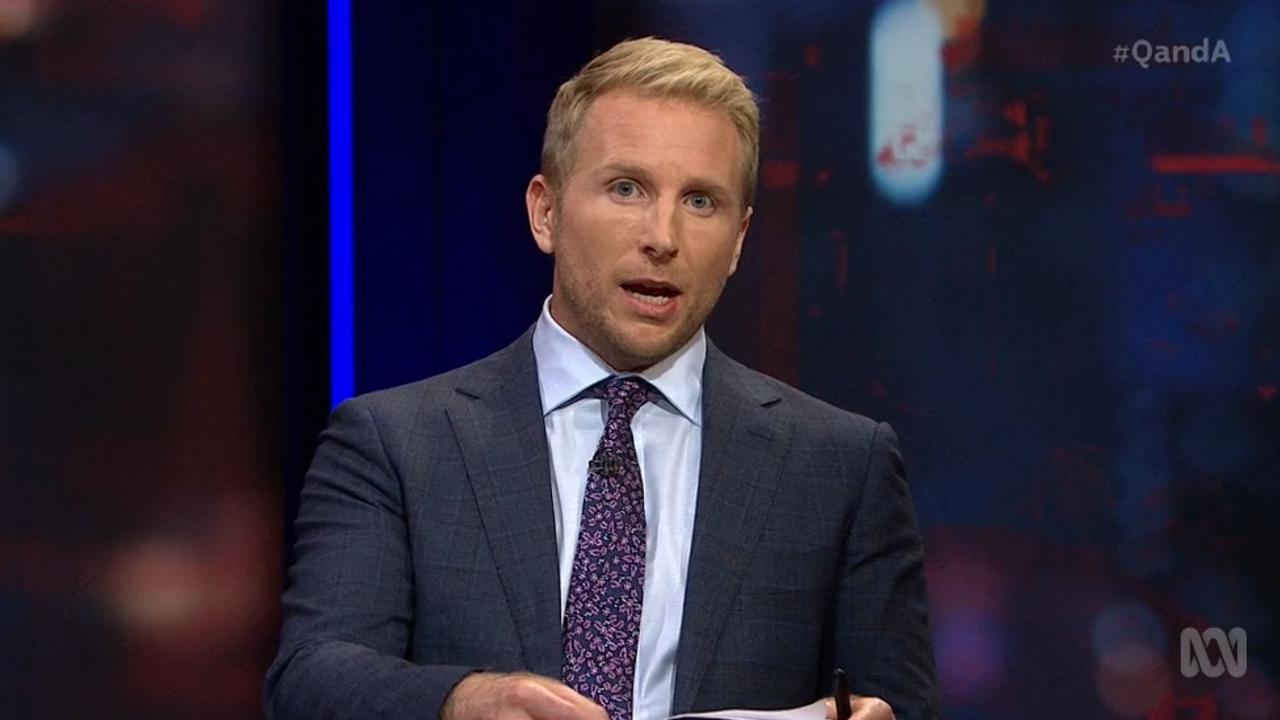
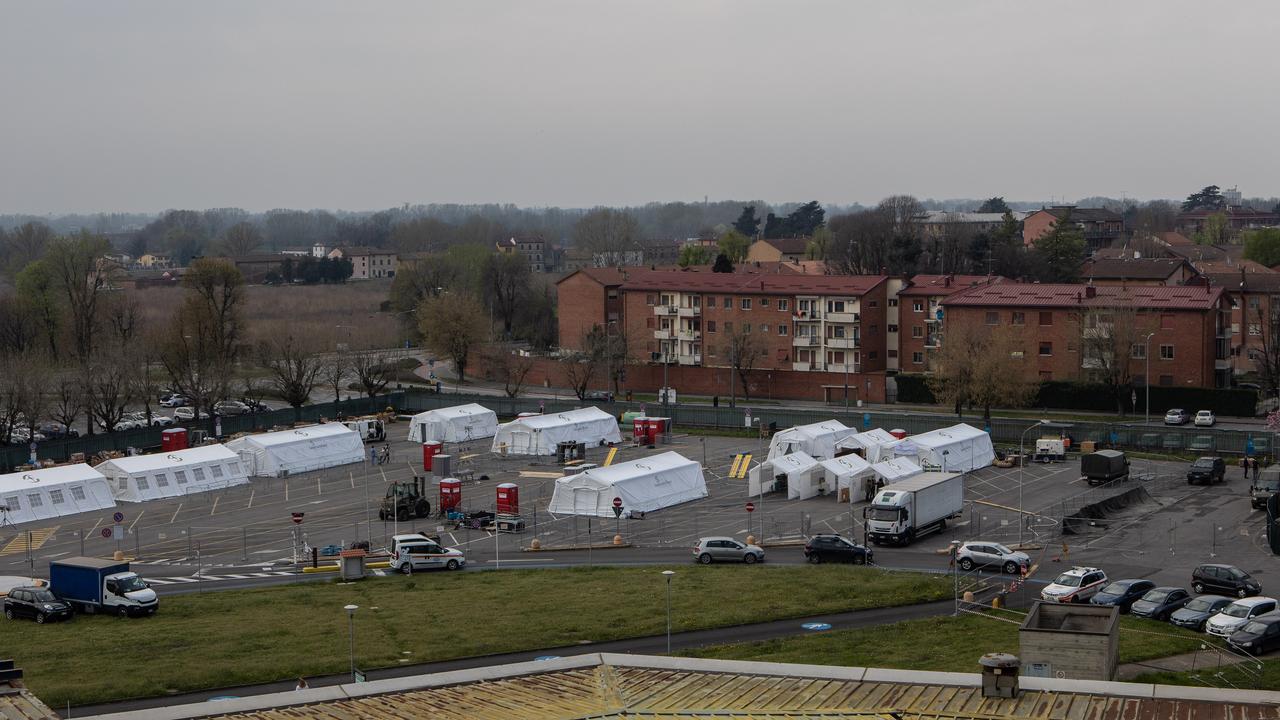
“We’ve only had 20 people through this whole period that have been in intensive care. We’ve had seven deaths unfortunately. All in older people. The lower age is 77. The average age is 86.”
TESTING CRITERIA TO WIDEN
Mr Kelly also said Australians could have more access to virus testing in the coming days as the government would investigate removing the “traveller” component to the criteria.
At present, tests are limited to those who have travelled overseas within 14 days of the onset of symptoms, or come in contact with such a person.
“We’ll be removing the traveller component, but we’re working on that at the moment,” Mr Kelly said.
“There will be announcements about that over the coming days.”
He was asked by presenter Hamish McDonald if he current modelling shows the virus is on course to infect between 20 and 60 per cent of the population.
Mr Kelly said the 60 per cent figure would be an “uncontrolled epidemic” and the 20 per cent prediction was “without the major interventions that have gone into place this week”.
He said there was more to come in terms of the government response this week, suggesting it could take 18 months to control the epidemic.
“We’re all hoping for a vaccine in the future. If we get a vaccine that works and is effective, then we’re protected and fantastic. We can really defeat this virus,” he said.
“If we go into lockdown as many people are suggesting we should do now, this is not a two or 4-week phenomenon, it’s until we get the vaccine. If we do that, less people will be infected. Every time we take our foot off the brake … more people will get the infection. We can’t completely eradicate this infection unless we get a vaccine.”
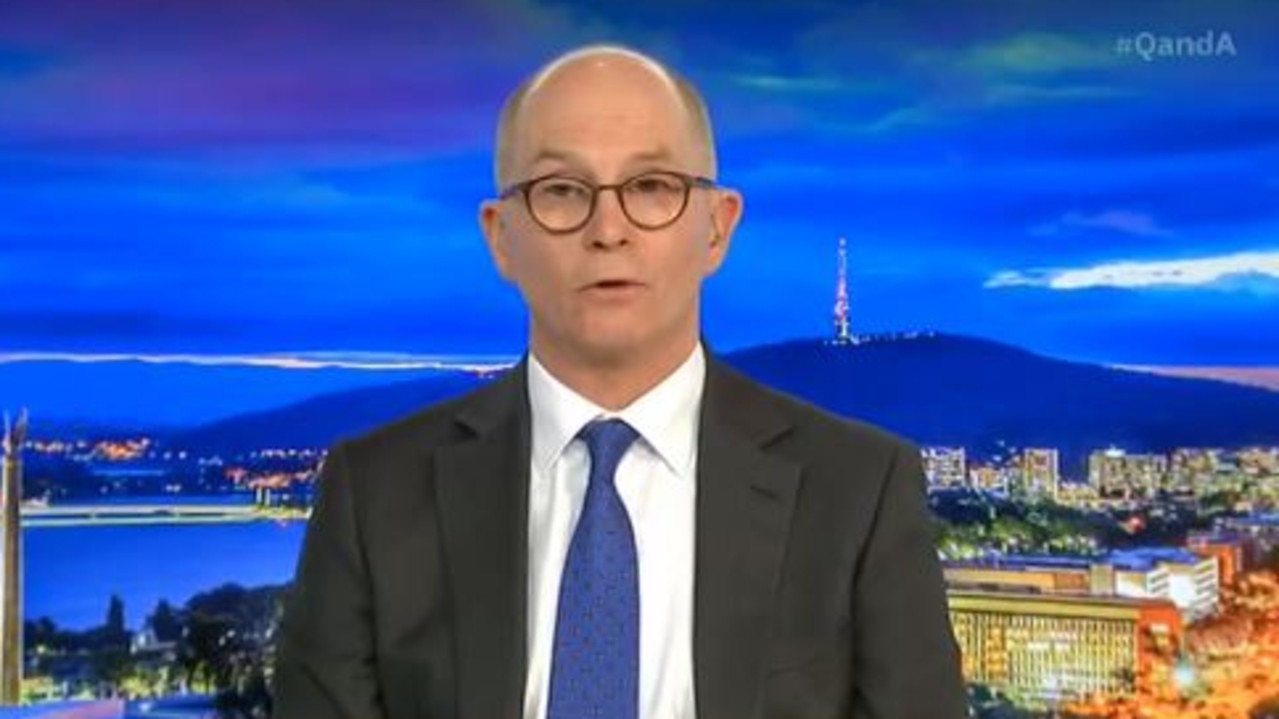
However, the government’s response so far to the epidemic was criticised by Mr Swan who said Australia had only a “partially targeted testing campaign” which was letting people slip under the radar – particularly those with no symptoms.
“We’re missing asymptomatics. So have an inadequate testing regime,” he said.
“We have an inadequate quarantine regime which relies on trust and therefore we’re not actually under control and the hockey stick illustrates that. It’s doubling every two or three days.”
He said this means we need much stronger social distancing measures put in place — including the closure of schools.
However, Mr Kelly responded saying the federal government’s call to keep schools open was the right one.
He said data from Wuhan showed that children got sick in “very, very low numbers” and the coronavirus is “very different to the flu” in the way it spreads through populations of children.
He said children with the coronavirus in other countries tend to have caught it from their parents.
“Closing schools is a big thing. What we’ve been trying to do right throughout this is to look at proportionate responses, what needs to be done now, thinking of that long-term game. What is sustainable over the long term? This is not a two or four-week thing,” he said.
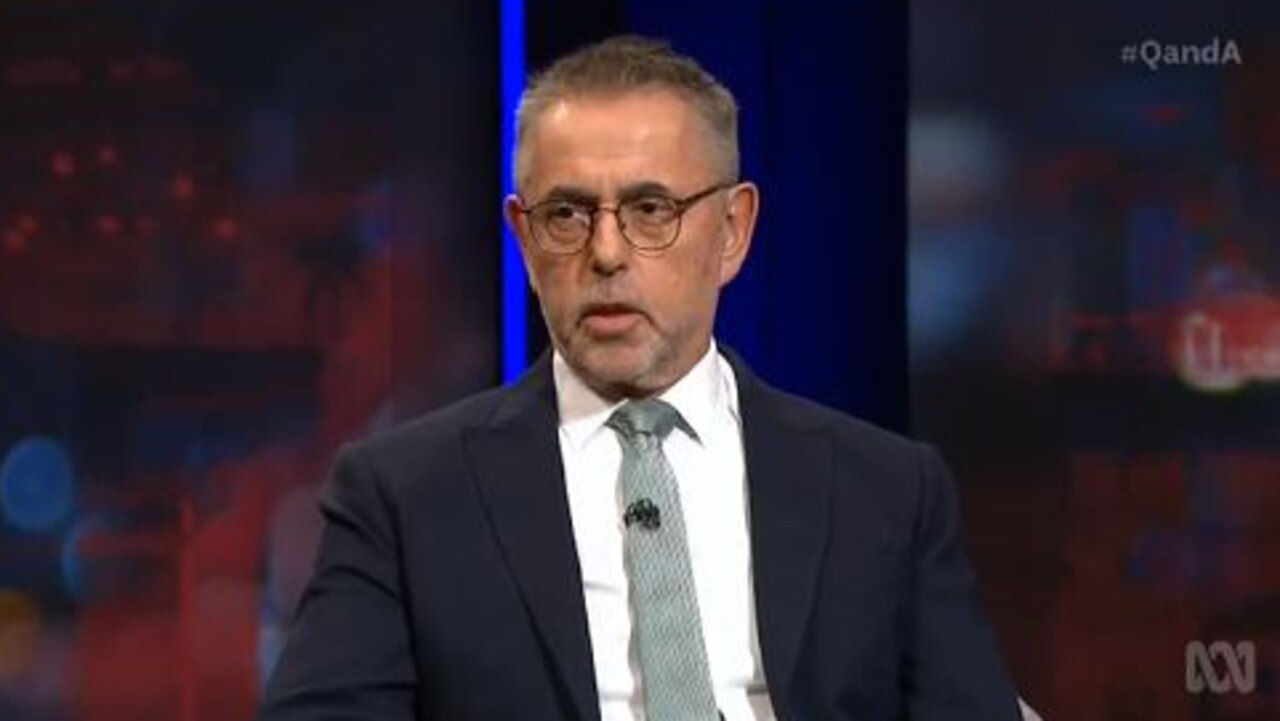
“If schools close, they are closed for at least the next six months, probably for the whole school year … That’s a life-changing event. We can’t make these decisions lightly and they may have a place at some point.”
Mr Kelly opened the show by telling the audience “this is serious”.
“No-one expected 2020 to start as it has. We’ve had bushfires. We’ve had floods. And now this virus. So while we’ve been preparing for many years for a pandemic similar to this, this is unexpected at this time,” he said.
“The world has changed. Australia has changed. And we’re all in this together — young and old — and we all need to play our part to get past this crisis that we’re in.
“I want people tonight to really start listening to the messages. Listen to the experts. Keep safe. Keep calm. And keep your distance.”




